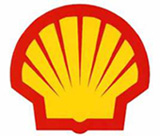影片對白
At any rate, we land, we meet my guy, and even if we don't find the person who
tipped off the cops, we find his phone. The paper trail
begins.
我觀之我見
似乎繼父母與繼子女的關系都是比較難處的……
考考你
一展身手
2. Tip off
在口語中的意思是“Supply with secret or private information; also, warn or
alert”,例如:
The broker often tipped her off about stocks about to go down in
price.
They were tipped off and left the country before the police could
catch them.
Tip off 還可以表示“透露內部信息,給出內行人的建議”,例如:He tipped off the police about the
terrorist plot.
3. Paper trail
這是一個法律術語,意思是“the documentary evidence of one's
actions”,可以是手寫的,也可以是打印的,包括有書面檔案、文檔、記錄等等,我們來看幾個例子,體會一下這個術語的含義:
Judges leave a
paper trail, a track record of opinions that tell, literally, where they are
coming from.
This paper trail consisted mainly of electronically stored
information.
4. Make a scene
這個片語也寫作create a scene,意為“make a public disturbance or excited emotional
display(當眾吵鬧或興奮得大喊大叫等)”,例如:Joan made a scene when the restaurant lost her dinner
reservation.
5. You got no clue.
意思是:You have no idea.
文化面面觀
美國的石油產業與石油政策
 Oil was an integral part of U.S. foreign policy in
the twentieth century, and its influence has shown no sign of diminishing in the
twenty-first century. Oil has been and continues to be central to military power
and to modern industrial society, and possession of ample domestic oil supplies
and control over access to foreign oil reserves is a significant, and often
overlooked, element in the power position of the United States relative to its
rivals.
美國是世界第一大石油消費國,也是世界上已探明石油探明儲量最多的國家之一。美國的石油煉制加工行業主要集中于得克薩斯州、路易斯安納州、加利福尼亞州、伊利諾伊州、賓西法尼亞州、新澤西州、華盛頓州、俄亥俄州和印第安納州。目前美國市場上占主導地位的油公司主要是埃克森美孚公司、飛利浦大陸石油公司、雪佛龍德士古公司、殼牌石油公司、Frontier
Oil, Marathon
Oil等公司。對于國內的石油開采與生產,美國用法律形式明確了石油資源的所有權、勘探權和開采權,然后用市場競標方式確定開采權的租讓價格。政府不直接干預私人企業的石油生產和經營,油品價格由市場供求決定。戰略儲備石油的采購、儲存、釋放基本上采取市場招標機制,政府運用金融衍生品工具和期貨市場來分散和回避國際石油價格激烈波動的影響,或者降低儲備成本。另外,政府還通過補貼、技術援助和融資手段支持國內能源企業參與國際競爭。
Oil was an integral part of U.S. foreign policy in
the twentieth century, and its influence has shown no sign of diminishing in the
twenty-first century. Oil has been and continues to be central to military power
and to modern industrial society, and possession of ample domestic oil supplies
and control over access to foreign oil reserves is a significant, and often
overlooked, element in the power position of the United States relative to its
rivals.
美國是世界第一大石油消費國,也是世界上已探明石油探明儲量最多的國家之一。美國的石油煉制加工行業主要集中于得克薩斯州、路易斯安納州、加利福尼亞州、伊利諾伊州、賓西法尼亞州、新澤西州、華盛頓州、俄亥俄州和印第安納州。目前美國市場上占主導地位的油公司主要是埃克森美孚公司、飛利浦大陸石油公司、雪佛龍德士古公司、殼牌石油公司、Frontier
Oil, Marathon
Oil等公司。對于國內的石油開采與生產,美國用法律形式明確了石油資源的所有權、勘探權和開采權,然后用市場競標方式確定開采權的租讓價格。政府不直接干預私人企業的石油生產和經營,油品價格由市場供求決定。戰略儲備石油的采購、儲存、釋放基本上采取市場招標機制,政府運用金融衍生品工具和期貨市場來分散和回避國際石油價格激烈波動的影響,或者降低儲備成本。另外,政府還通過補貼、技術援助和融資手段支持國內能源企業參與國際競爭。
 Control of oil has been intimately linked to
broader political, military, and economic objectives. These larger foreign
policy concerns have shaped the issue of control and have, in turn, been shaped
by it. For example, all the major postwar doctrines of U.S. foreign policy-the
Truman, Eisenhower, Nixon, Carter, and Reagan doctrines-relate, either directly
or indirectly, to the Middle East and its oil.
Control of oil has been intimately linked to
broader political, military, and economic objectives. These larger foreign
policy concerns have shaped the issue of control and have, in turn, been shaped
by it. For example, all the major postwar doctrines of U.S. foreign policy-the
Truman, Eisenhower, Nixon, Carter, and Reagan doctrines-relate, either directly
or indirectly, to the Middle East and its oil.
The oil industry has been one of the most modern and best-organized sectors
of the U.S. economy, and both domestic and international companies have opposed
policies that reduce the demand for their products. Domestic producers have
argued that greater incentives for domestic production are the answer to U.S.
oil needs, while companies with interests overseas have argued that they can
supply U.S. oil needs, provided they receive government protection and support.